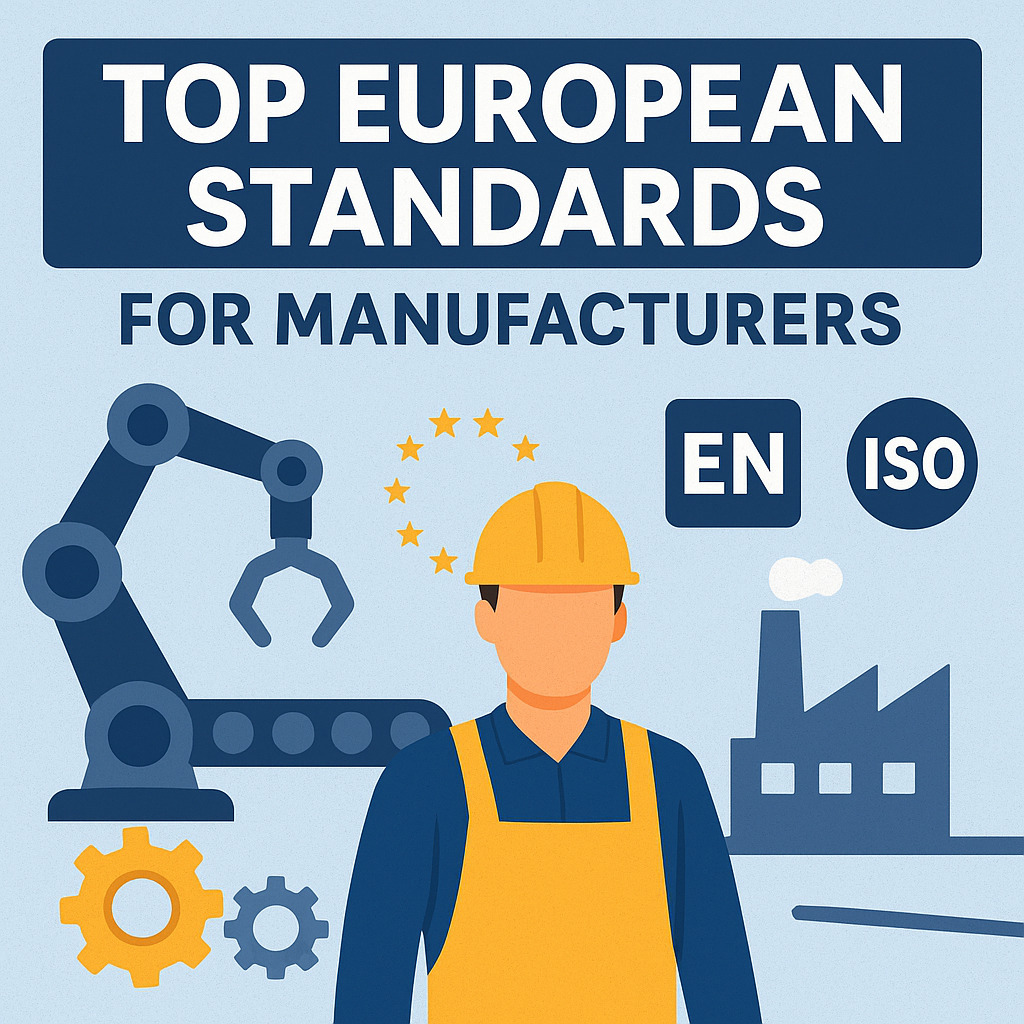In the European manufacturing sector, quality and compliance are not optional — they are mandatory for success. The top European standards for manufacturers define how products must be designed, produced, and tested to ensure safety, reliability, and market acceptance. Whether you produce machinery, food, medical devices, or electrical equipment, understanding EN and ISO standards is essential to stay competitive and compliant.
Why European Standards Matter for Manufacturers
Manufacturers in Europe operate within a highly regulated framework designed to protect consumers and guarantee fair trade. European standards (EN) provide clear requirements for:
- Product safety and quality control
- Environmental and sustainability compliance
- Interoperability across industries and borders
- Legal conformity under EU directives
Adopting these standards simplifies CE marking, reduces recalls, and increases consumer confidence — all vital for any business seeking growth within the European Union.
Key EN and ISO Standards for Manufacturers
Here are the most relevant European and international standards that every manufacturer should know:
1. EN ISO 9001 – Quality Management Systems
The foundation of all quality frameworks. This standard helps manufacturers streamline operations, reduce waste, and improve customer satisfaction through consistent production processes.
2. EN ISO 14001 – Environmental Management
Ensures companies minimize environmental impact, manage waste efficiently, and comply with EU sustainability goals.
3. EN ISO 45001 – Occupational Health and Safety
Protects employees by establishing safe workplace practices and reducing risks associated with manufacturing environments.
4. EN ISO 50001 – Energy Management
Focuses on optimizing energy use, reducing costs, and improving sustainability across all levels of production.
5. EN 1090 – Structural Steel and Aluminum
Essential for companies producing steel structures or components. Compliance is mandatory for CE marking in the construction sector.
6. EN ISO 3834 – Welding Quality Requirements
Specifies quality controls for welding processes, ensuring structural integrity and safety in mechanical and construction industries.
7. EN ISO 13485 – Medical Device Manufacturing
Defines strict requirements for the design and production of medical devices within the European Union.
How European Standards Benefit Manufacturers
Applying these standards brings immediate advantages:
- Legal Compliance: Avoid penalties and product bans.
- Market Expansion: Sell freely across the EU with recognized certifications.
- Efficiency: Standardized processes reduce errors and costs.
- Reputation: Customers trust certified manufacturers more.
- Innovation: Standards encourage continuous improvement and product development.
How to Access European Standards
Manufacturers can easily access and download the latest European and ISO standards online.
One of the best resources is Genorma.com — a trusted platform to browse, purchase, and stay updated on all official EN and ISO publications.
You can also use our Search European Standards page to explore standards directly from Genorma through our integrated search tool.
The Future of European Manufacturing Standards
The manufacturing sector in Europe is rapidly evolving, with new standards focusing on digital transformation, AI integration, and sustainability. Expect more emphasis on cybersecurity, eco-design, and smart manufacturing systems (Industry 4.0) in the coming years.
Staying updated with evolving standards is key to maintaining competitiveness in a global market.
